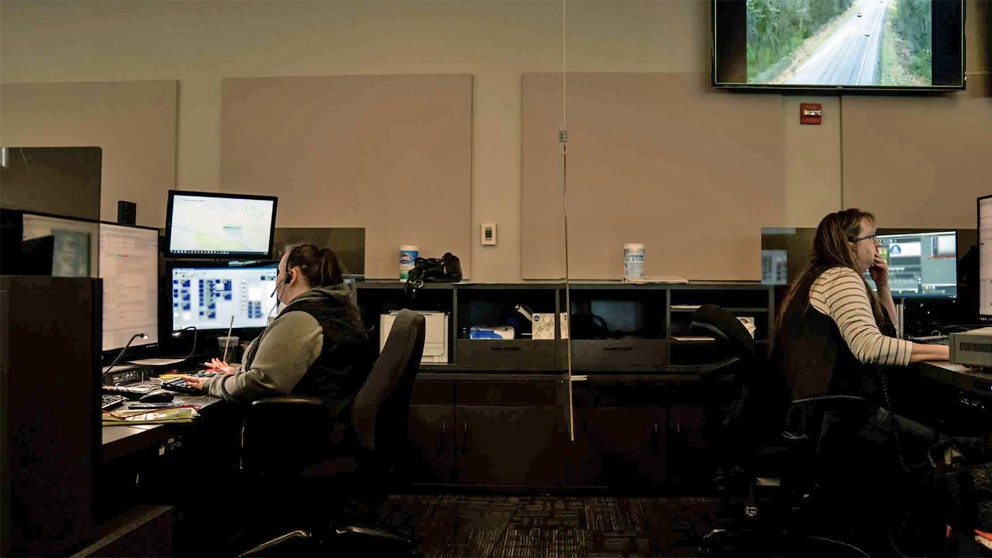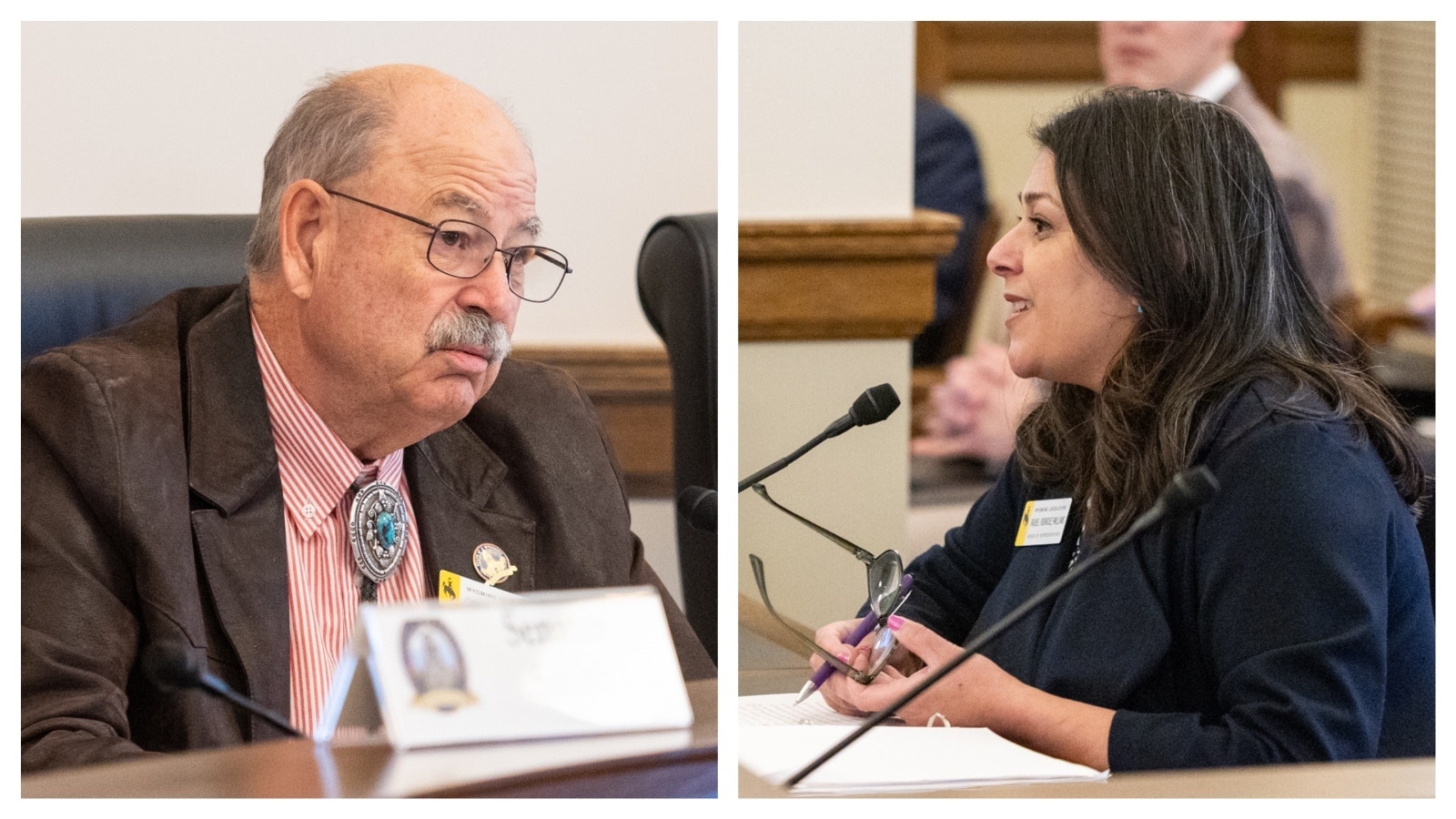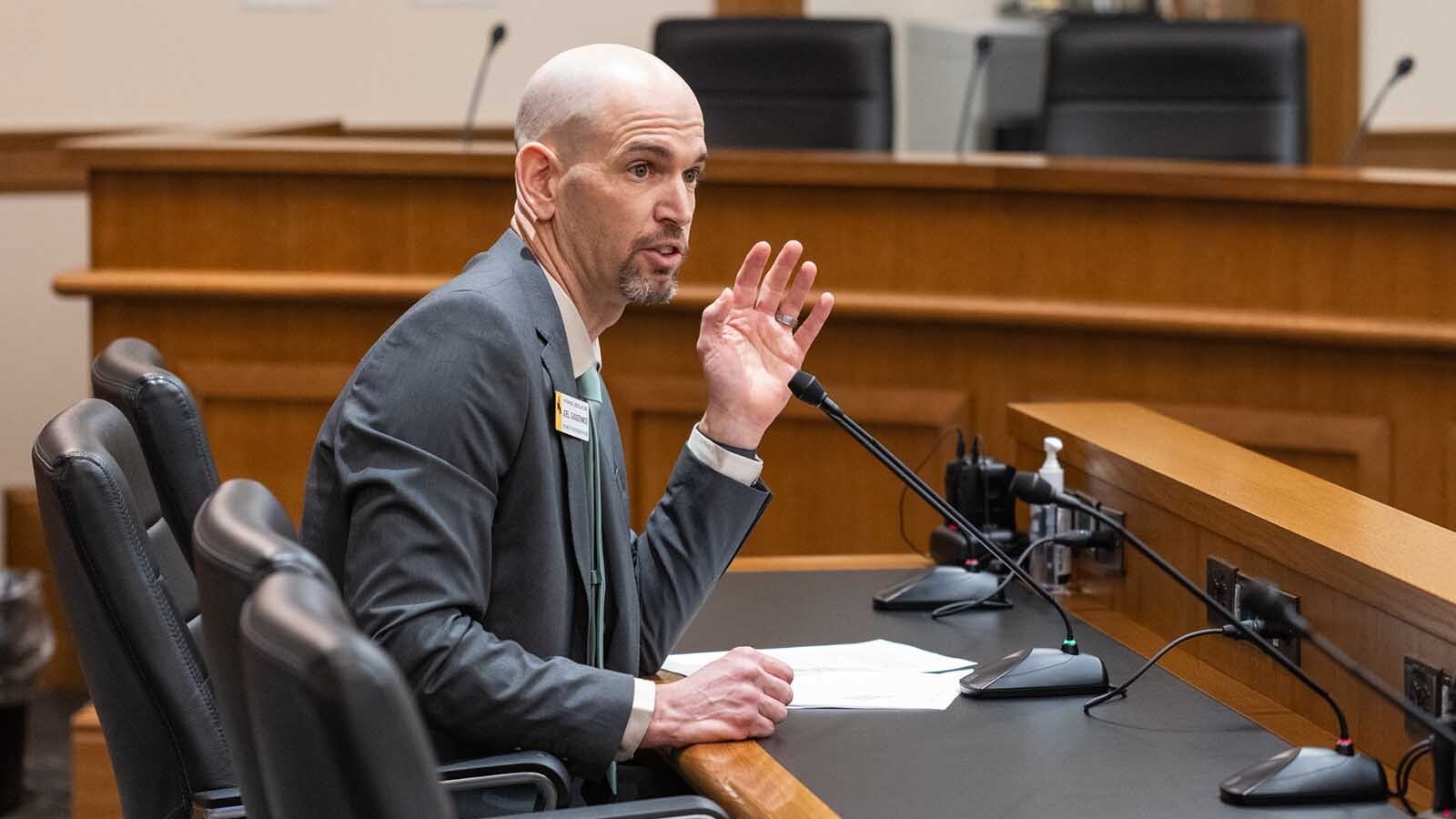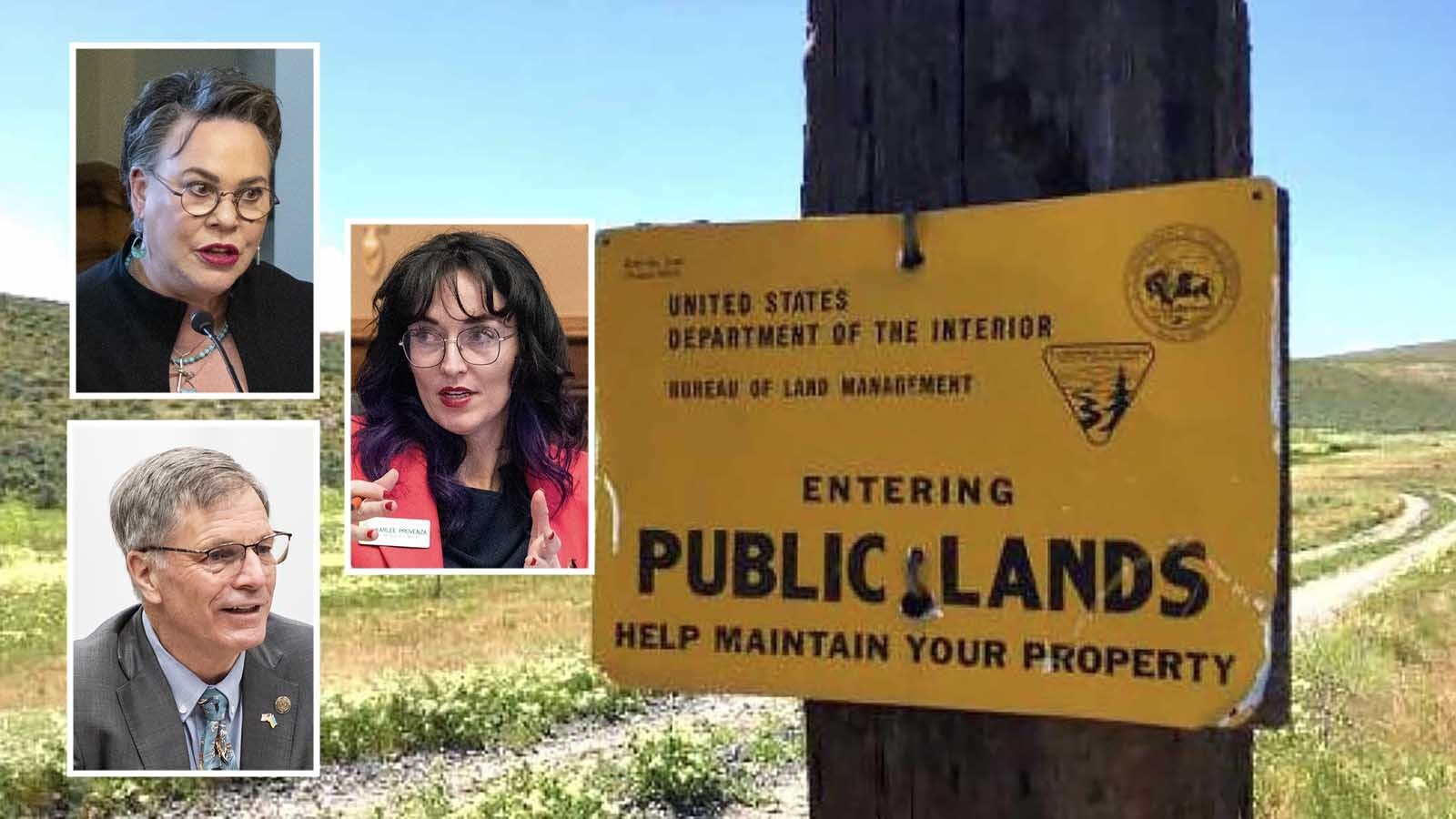Andi Summerville, executive director of the Wyoming Association of Mental Health and Substance Abuse Centers, said the increased availability of suicide hotline resources in Wyoming is making a real difference.
It’s a badly needed service as Wyoming has for the last decade had one of the highest per capita suicide rates in the nation and the highest rate the past three years.
“We’re seeing some direct connection into services, to crisis stabilization and working with local law enforcement on active rescues,” Summerville said during the State Legislature’s Joint Revenue committee meeting on Wednesday.
People experiencing a mental health crisis in Wyoming or any state can receive help by dialing 9-8-8 to reach a suicide and crisis lifeline.
There are two suicide prevention call centers in Wyoming, located in Casper and Greybull, dedicated to providing suicide and crisis lifeline services to residents. These 24/7 call centers each receive about 400-500 calls a month.
On Wednesday, the Revenue committee approved Summerville’s request to draft a bill establishing a trust fund to support the state’s 24/7 call centers permanently.
She said it’s not uncommon to receive a few calls per month that require an active rescue with a severe risk of death by suicide.
“We need to have the resources in place to make sure we can continue what we’ve started,” said Rob Johnston, executive director of the Wyoming Health Council.
These call centers have an uncertain future as their current operations are funded by a temporary source of federal and state dollars.
The two call centers were first established in Wyoming in 2020 with limited hours.
In early July, the call centers were upgraded to 24 hours-a-day, seven-days-a-week service. These upgrades were made available based on a two-year allocation of $2.1 million in American Rescue Plan Act (ARPA) federal funds and $400,000 from the state’s general fund.
Summerville is concerned about where funding for these services will come from after 2024.
“The question is how do we keep it sustainable? Summerville told the committee on Wednesday. “We know it’s a critical, safety-net service to have in place. We don’t have an additional revenue source to fund this.”
Funding Options
Federal legislation approved by former President Donald Trump in 2020 grants states the authority to assess a fee on calls made through the 988 hotline.
Summerville proposed the possibility of charging 50 cents per call made in Wyoming. This fee is similar to the charge already placed on 911 calls made in Wyoming. The exact cost of these fees is determined by individual cities and counties but cannot exceed 75 cents. Jeremiah Rieman, executive director of the Wyoming County Commissioners Association, said this system is also underfunded.
Summerville said fees collected from these calls and texts would provide enough money to support the state’s call center operations and provide a little extra funding to place in a trust fund for the Suicide and Crisis Lifeline program that could be used for establishing new services in the future like mobile crisis efforts and crisis stabilization services.
“That’s it, the money can’t be used for anything else,” Summerville said.
ARPA funds are not allowed to be used toward trust funds.
Summerville said funding the call centers first should be a top priority in Wyoming, as the state is not ready to set up mobile crisis and crisis stabilization services at this time.
Jody Levin, a lobbyist for Verizon Wireless and Charter Communications, spoke against the idea of taxing callers at the meeting, and recommended using money from the state’s general fund to support Wyoming’s 988 system.
Levin said extra fees placed on consumers’ phone bills has become the “defacto revenue collector for the federal government.”
“There continues to be proposals to use phone bills for tax collection and it is something by and large the industry argues against,” she said, saying this mechanism opens the phone carriers up to audits.
Several members of the committee like Rep. Mike Yin, D-Jackson, opposed the idea of taxing callers.
Levin said there are 25 states that considered legislation to add 988 fees but decided against enacting them. Four states enacted these fees and California is still considering legislation.
Working under the National Suicide Prevention Lifeline (NSPL), call centers are required to adhere to national standards for evidence-based practices.
Although she didn’t recommend it be included in the verbiage of a future bill, Summerville provided information to the committee from the National Suicide Prevention Lifeline related to one of its “best practice” policies.
This is the recommendation that all 988 call center staff give special attention and specialized services to “at-risk populations” of callers, such as ethnic minorities, veterans, youth and individuals who identify as LGBTQ. To become a certified 988 call center staffer, the NSPL requires employees to undergo training to better facilitate these demographics.
Rep. Mark Jennings, R-Sheridan, found fault with this policy.
“I don’t care who’s on the other end of the line, so why would we make that specific?” he questioned Summerville.
Summerville said this distinction does matter, citing the example of pairing callers with like-minded staff members who share a similar background.
“If you’re a veteran and you can get another veteran on the line or somebody that’s trained in that they may be more likely to pursue services,” she said.
She also said text services offered through the call centers are especially helpful for connecting with youth and young adult callers. Lance Neiberger, a volunteer with the Natrona County Suicide Prevention Task Force, said his department is routinely called into elementary schools to talk to students as young as 10 years old.
Summerville said 24/7 call center coverage runs at an estimated cost of $1.25 million per year.
With the Wyoming Department of Health now actively promoting these call centers, calls made to these facilities are expected to rise by as much as 15% per year, Summerville said.
“Our goal is to answer every single one of those calls, we don’t want to bounce any of them out of state if we don’t have to,” Sommerville said.
Sen. Tom James, R-Green River, posed the possibility of placing a fee on the state’s hospital districts to source revenue for the program, since it would be local hospitals that could theoretically benefit from suicide and crisis intervention services resolved through the phone and by other parties.
“That way the patients will not come in the ER (emergency room) for expensive treatment,” he said.
Summerville said in conversations with various hospital staff, they have communicated to her they believe they are already bearing many of the costs related to the mental health crisis in America.
Medicaid or insurance carriers typically pick up the cost for people who seek services at community mental health centers. If these costs can’t be covered through those sources, it’s typically the mental health facility itself that ends up paying this fee.
Acquiring federal grants is another funding solution, an avenue that has provided funds to the resource centers in the past. Summerville said these funds are limited and are never guaranteed in the future.
Solutions Needed
Neiberger said there were 33 suicides in Natrona County last year. Rieman said he was told Campbell County is already on pace to set a new record for suicides this year.
Rep. Pat Sweeney, R-Casper, said the severity of the mental health crisis hit home for him while attending a funeral for a Casper police officer who had committed suicide
Neiberger said suicide should be considered a line of duty death benefit for first responders. He said there were five who took their life in his county in a recent one-year period. Rep. Mark Baker, R-Green River, said he would support this.
“I don’t know how they do it and then they’re supposed to go home and act normal as a family person,” he said.
One shortcoming of the current system is that it relies on the area code of a caller’s phone number to determine what call center they will be directed to. This means that a Wyoming resident with a phone number from an out-of-state area code will not be directed to an in-state call center. Summerville said plans are underway to develop a geo-location identification for directing calls to the most appropriate call centers.
Johnston said connecting callers to local staff makes a big difference, providing a lifeline of commonality.
“We need sustainable funding, grant money doesn’t cover those costs,” he said. “The challenge with grant funding is it’s great for extra programs you want to add on, but it doesn’t cover the basics.”
Rep. Steve Harshman, R-Casper, committed to finding a way to pay for the 24/7 call centers permanently.
Rep. Tim Hallinan, R-Gillette, recommended seeing how well the program works over the next two years under the 24/7 model before making a commitment to a trust fund or supporting the call centers through a phone tax, an idea Sen. Cale Case, R-Lander, agreed with.
James voted against drafting the legislation and said there needs to be more focus placed on what leads people to suicide, rather than creating more programs to handle people who already have these issues.
“There’s just so much money in all these other programs and all these other things that we’re doing that we just keeping going there (funding more programs),” he said.





